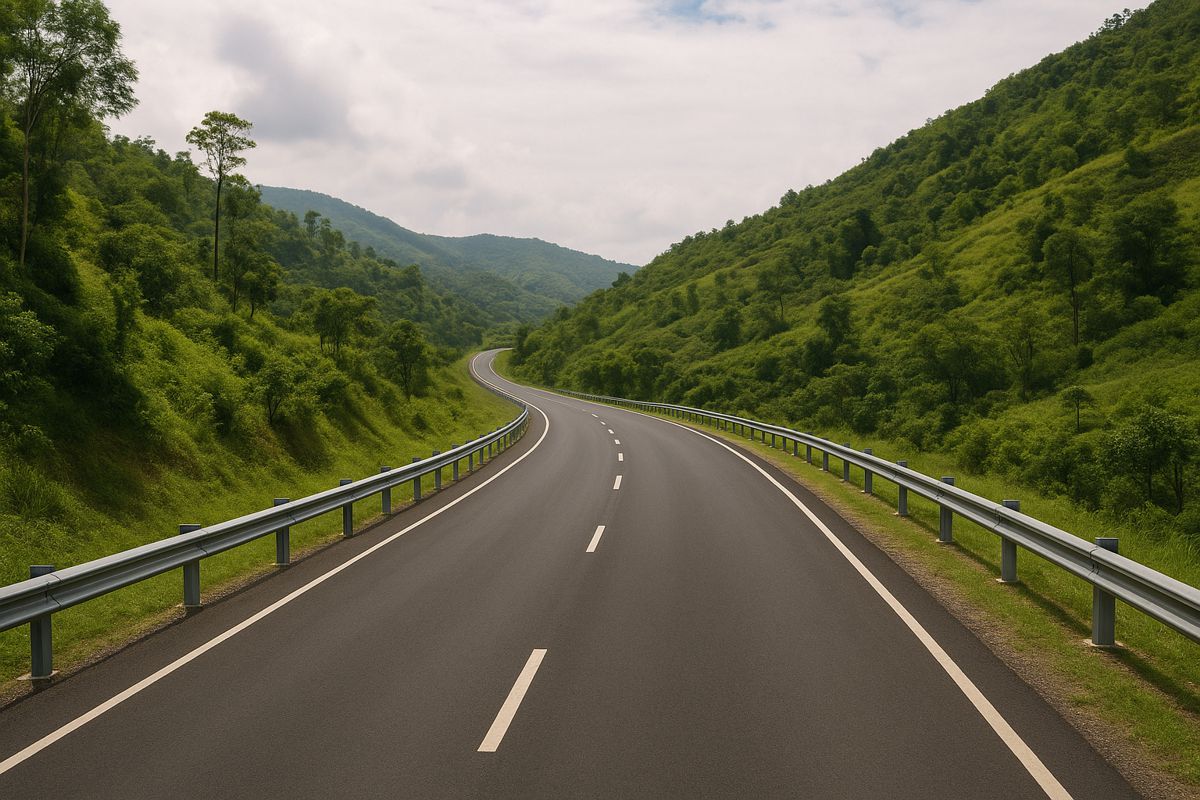Building Resilient Roads for a Sustainable Future in Timor-Leste
The Asian Development Bank (ADB) has approved a $4 million grant to upgrade and future-proof critical road infrastructure in Timor-Leste’s Ermera region. This initiative is part of a broader effort to enhance rural connectivity, strengthen local economies, and build resilience to climate challenges in one of the country’s most underserved areas.
Funded through the Asian Development Fund (ADF), the project targets an essential 11-kilometre corridor linking Ermera to Fatubessi. The road serves as a lifeline for thousands of residents, connecting them to markets, schools, and healthcare services. The upgrades will not only improve travel efficiency but also ensure the route remains safe and operable amid worsening climate impacts.
ADB Country Director for Timor-Leste, Stefania Dina, highlighted the project’s importance: “Timor-Leste’s development progress is facing growing risks from extreme weather. This project empowers rural communities to stay connected to markets, essential services, and livelihoods. By enhancing the government’s capacity to plan and maintain climate-resilient infrastructure, we are paving the way for a safer and more resilient Ermera, fully aligned with Timor-Leste’s vision for climate resilience.”
Building Roads that Withstand the Climate Challenge
The Ermera–Fatubessi corridor upgrade is more than a typical road improvement project. It reflects a strategic pivot toward nature-based and climate-resilient design. With Timor-Leste’s steep terrain and heavy rainfall patterns, landslides, erosion, and flooding pose persistent threats to mobility and safety. To address this, ADB and local authorities are integrating environmentally adaptive engineering methods.
Nature-based solutions, such as reforestation of slopes and the installation of bioengineering structures, will stabilise vulnerable terrain. Improved drainage systems and eco-friendly retaining walls will also mitigate erosion while allowing for natural water flow. The project aims to create roads that blend with their environment, resilient yet sustainable.
Beyond construction, ADB is focusing on long-term resilience through improved institutional capacity. The project will support the Directorate General of Roads, Bridges, Prevention, and Flood Control under the Ministry of Public Works. Training will be provided to both government engineers and local communities, promoting risk-informed maintenance and planning.
Empowering Communities Through Resilient Infrastructure
Rural isolation is one of Timor-Leste’s most pressing development challenges. Many communities in the mountainous interior face difficulty accessing essential services, particularly during the rainy season when roads become impassable. The upgraded Ermera–Fatubessi corridor will provide a crucial link for farmers, small traders, and families who depend on reliable transport to sustain their livelihoods.
The ADB initiative directly supports Timor-Leste’s national development priorities, which emphasise resilience, sustainability, and inclusivity. Enhanced access to schools, healthcare, and local markets is expected to uplift living standards while promoting regional economic activity.
This project also empowers local communities by involving them in maintenance and awareness initiatives. Residents will be trained in monitoring environmental risks and maintaining roadside vegetation, ensuring that the benefits of the project extend well beyond construction. In doing so, the initiative builds a shared sense of stewardship for vital public assets.
Aligning with Timor-Leste’s Climate and Development Vision
Timor-Leste is among the most climate-vulnerable nations in Southeast Asia. Increased rainfall intensity, flooding, and soil erosion continue to impact infrastructure and agriculture, the backbone of the rural economy. The government’s climate resilience vision focuses on sustainable infrastructure, improved land management, and community adaptation.
ADB’s support aligns closely with these national goals. By embedding climate resilience into infrastructure design and operations, the project exemplifies how development assistance can accelerate long-term adaptation and reduce future costs from disaster recovery.
In addition to the direct benefits in Ermera, the project serves as a pilot model for similar initiatives across the country. Lessons learned will inform national policies on resilient transport planning, risk management, and sustainable maintenance practices.
A Broader Regional Impact
The Asian Development Bank continues to play a pivotal role in shaping sustainable infrastructure throughout Asia and the Pacific. Since its establishment in 1966, ADB has supported inclusive growth, energy transition, and resilience-building projects across 69 member nations. In Timor-Leste, ADB’s portfolio has included initiatives in water resource management, renewable energy, education, and public sector governance.
Through its partnerships and financial instruments, ADB provides more than funding, it delivers knowledge, innovation, and technical expertise. The Ermera project illustrates how local action, guided by international cooperation, can create tangible improvements in people’s daily lives.
Strengthening Institutions for a Sustainable Tomorrow
A crucial component of this project lies in institutional strengthening. By enhancing the capacity of the Directorate General of Roads and other local bodies, ADB is helping Timor-Leste establish a framework for proactive infrastructure management. The introduction of risk-informed maintenance protocols will ensure that future road projects are designed with sustainability at their core.
Moreover, this collaboration helps embed modern engineering standards, safety practices, and environmental safeguards into the country’s road-building processes. Such advancements are vital for Timor-Leste’s long-term economic stability and self-reliance.
Paving the Way for Future Resilience
The $4 million project finance for Ermera represents more than just a construction project, it’s a cornerstone for future resilience. As the country continues to recover from the global pandemic and tackle the realities of climate change, projects like this lay the foundation for inclusive, sustainable growth.
By marrying infrastructure improvement with environmental stewardship, Timor-Leste is setting a new benchmark for climate-adaptive development in small island nations. ADB’s continued partnership demonstrates how targeted investment and shared expertise can transform vulnerability into opportunity.





























